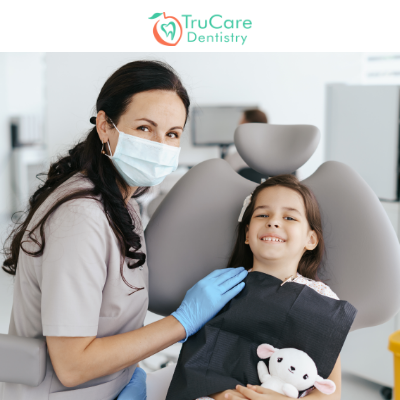
Hyperdontia is a dental condition characterized by supernumerary teeth, or extra teeth, in the mouth. This condition can occur primarily in kids. Hyperdontia can lead to several dental problems. So, parents need to be aware of this condition and its potential complications. This blog will discuss hyperdontia at length, its causes, symptoms, and kids’ dental care procedures.
What is Hyperdontia in Kids?
Hyperdontia is a dental condition in which a child has one or more extra teeth. These extra teeth can be in different shapes and sizes anywhere in the mouth. The most common location for supernumerary teeth is the upper front teeth, found in the back of the mouth or roof.
The presence of redundant teeth can cause several problems, including crowding existing teeth, difficulty in biting and chewing, and problems with speech. In that case, you need to take your kid to dental care.
Causes of Hyperdontia in Kids
The exact cause of hyperdontia is unknown, but several factors may contribute to its development. These factors include:
- Genetics: Hyperdontia can be hereditary, passed down from generation to generation. A child with a family history of hyperdontia is more likely to develop this condition.
- Abnormal tooth development: Sometimes, during the early stages of tooth development, the cells that form teeth can divide abnormally, resulting in the formation of extra teeth.
- Environmental factors: Certain environmental factors, such as exposure to radiation or certain medications, can increase the risk of developing hyperdontia.
Symptoms of Hyperdontia in Kids
The most apparent symptom of hyperdontia is the presence of extra teeth in the mouth. However, other symptoms may indicate the presence of this condition, including:
- Crowding of existing teeth: If a child’s teeth appear crowded or have difficulty biting and chewing, this may be a sign of hyperdontia.
- Delayed tooth eruption: If a child’s teeth do not erupt at the expected time, this may be a sign of hyperdontia.
- Problems with speech: A child’s speaking difficulty may indicate hyperdontia.
If your child faces these issues, take them to the nearest kids’ dental care for a checkup.
Treatment of Hyperdontia in Kids
The treatment of hypodontia in kids involves a combination of different approaches.
- Early Diagnosis: Early diagnosis is essential for treating hyperdontia in kids. Parents should take their children to a dentist regularly, starting from an early age. It helps a dentist detect hyperdontia early (if it exists). If the dentist suspects hyperdontia, he may recommend X-rays to confirm the diagnosis.
- Extraction of Teeth: One of the most common treatments for hyperdontia in kids is teeth extraction. The dentist may suggest removing the excess teeth if they are causing dental problems such as crowded teeth. This procedure takes place under local anesthesia to ensure the child is comfortable and pain-free.
- Orthodontic Treatment: Orthodontic treatment is another approach to treat hyperdontia in kids. If the excess teeth are not causing dental problems, the orthodontist may recommend braces or other orthodontic appliances to align the teeth properly. This treatment can also help prevent future dental issues like tooth decay, gum disease, and jaw pain.
- Surgery: In some instances, surgery may be necessary to treat hyperdontia in kids. If the excess teeth are deep in the gums or bone, the dentist may need surgery to remove them. This procedure is mainly done under general anesthesia to ensure the child is comfortable.
- Monitoring: After treating hyperdontia, monitoring the kid’s dental health is essential. The dentist or orthodontist will schedule follow-up appointments to check the treatment progress and ensure no further dental problems in the kid.
- Proper Oral Hygiene: Good oral hygiene is essential for maintaining good dental health, especially after the treatment of hyperdontia. Parents should teach their children the importance of regularly brushing and flossing teeth. They should also encourage their children to eat a balanced diet low in sugar, vitamins, and minerals.
- Regular Dental Checkups: Maintaining good dental health is vital, especially after treating hyperdontia. Parents should regularly take their children to the dentist or orthodontist for routine checkups. The dentist or orthodontist can monitor the child’s dental health and detect problems early.
In a Nutshell
Hyperdontia is a common dental condition in kids that requires early diagnosis and treatment. The treatment involves a combination of different approaches, including the extraction of teeth, orthodontic treatment, surgery, monitoring, proper oral hygiene, and regular dental checkups. Kids with hyperdontia can enjoy healthy, beautiful smiles with appropriate treatment and care. We can make this true for you. TruCare Dentistry has an ecosystem that provides the best dental care. If you are looking for the best pediatric dentist in Roswell, GA, or nearby areas such as Sandy Springs, Marietta, Milton, Alpharetta, Dunwoody, or Woodstock, call (678) 321-7575 or check our website to book an appointment.
